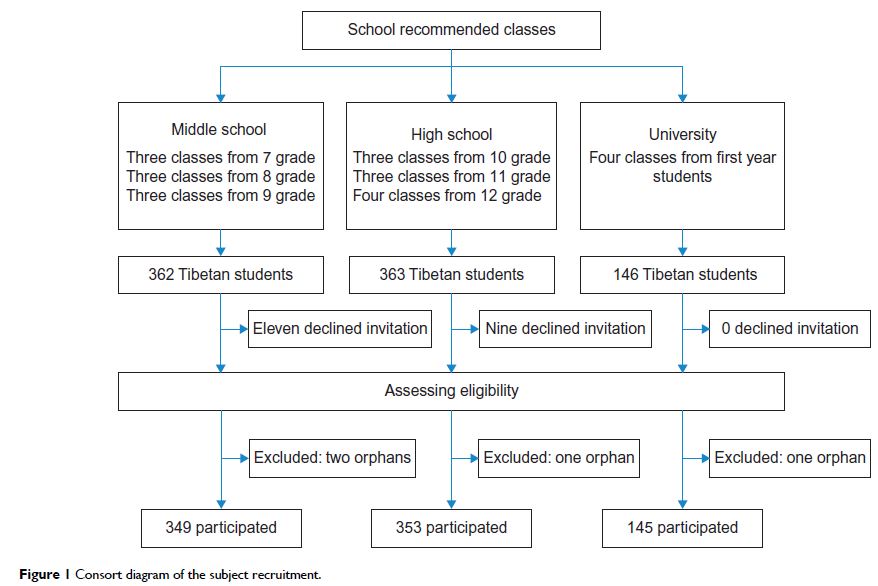109568
论文已发表
注册即可获取德孚的最新动态
IF 收录期刊
- 3.4 Breast Cancer (Dove Med Press)
- 3.2 Clin Epidemiol
- 2.6 Cancer Manag Res
- 2.9 Infect Drug Resist
- 3.7 Clin Interv Aging
- 5.1 Drug Des Dev Ther
- 3.1 Int J Chronic Obstr
- 6.6 Int J Nanomed
- 2.6 Int J Women's Health
- 2.9 Neuropsych Dis Treat
- 2.8 OncoTargets Ther
- 2.0 Patient Prefer Adher
- 2.2 Ther Clin Risk Manag
- 2.5 J Pain Res
- 3.0 Diabet Metab Synd Ob
- 3.2 Psychol Res Behav Ma
- 3.4 Nat Sci Sleep
- 1.8 Pharmgenomics Pers Med
- 2.0 Risk Manag Healthc Policy
- 4.1 J Inflamm Res
- 2.0 Int J Gen Med
- 3.4 J Hepatocell Carcinoma
- 3.0 J Asthma Allergy
- 2.2 Clin Cosmet Investig Dermatol
- 2.4 J Multidiscip Healthc

西藏版的父母教养方式评价量表 (s-EMBU) 用于测量子女养育风格的有效性和可靠性
Authors Yangzong C, Lerkiatbundit S, Luobu O, Cui C, Liabsuetrakul T, Kangzhuo B, Quzong D, Zhandui L, Zhen P, Chongsuvivatwong V
Received 21 April 2016
Accepted for publication 30 May 2016
Published 20 December 2016 Volume 2017:10 Pages 1—8
DOI https://doi.org/10.2147/PRBM.S111073
Checked for plagiarism Yes
Review by Single-blind
Peer reviewers approved by Dr Amy Norman
Peer reviewer comments 2
Editor who approved publication: Dr Igor Elman
Abstract: Parenting style experienced during childhood has profound effects on
children’s futures. Scales developed in other countries have never been
validated in the Tibetan context. The present study aimed to examine the
construct validity and reliability of a Tibetan translation of the 23-item
short form of the Egna Minnen Beträffande Uppfostran [One’s Memories of
Upbringing] (s-EMBU) and to test the correlation between the parenting styles
of fathers and mothers. A cross-sectional study was conducted in a sample of
847 students aged 12–21 years from Lhasa, Tibet, during September and October 2015
with a participation rate of 97.7%. The Tibetan translation of self-completed
s-EMBU was administered. Confirmatory factor analysis was employed to test the
scale’s validity on the first half of the sample and was then cross-validated
with the second half of the sample. The final model consisted of six factors:
three (rejection, emotional warmth, and overprotection) for each parent,
equality constrained on factor loadings, factor correlations, and error
variance between father and mother. Father–mother correlation coefficients
ranged from 0.81 to 0.86, and the level of consistency ranged from 0.62 to
0.82. Thus, the slightly modified s-EMBU is suitable for use in the Tibetan
culture where both the father and the mother have consistent parenting styles.
Keywords: Tibetan, parenting style, s-EMBU,
validity, reliability, Egna Minnen Beträffande Uppfostran
